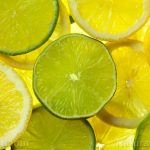
Here’s a quick and easy guide to making your own cleaning products
Wednesday, April 03, 2019 by Zoey Sky
http://www.products.news/2019-04-03-a-quick-and-easy-guide-to-making-your-own-cleaning-products.html

Most store-bought cleaning products are expensive, and they usually contain chemicals that are bad for your health and the environment. To save money, learn how to make natural cleaning products using affordable and non-toxic ingredients that you can find around the house. (h/t to TheOrganicPrepper.com)
Why are store-bought cleaning products bad for you?
If you use cleaning products regularly, you are often exposed to various chemicals that don’t leave your body. These chemicals may accumulate in your fat and bone marrow, and this is worrying because the ingredients in cleaning products aren’t always tested thoroughly.
It may seem like these products are helping you clean your house, but they could be slowly poisoning you. Cleaning products contain corrosive substances, irritating artificial fragrances, and petrochemicals.
These ingredients may cause immediate symptoms such as:
- Allergic reactions
- Eye irritation
- Headaches
- Skin irritation
- Sneezing
- Watery eyes
Toxic cleaning products are also linked to long-term health problems like:
- Cancer
- Brain cell death
- Decreased sperm counts
- Hormone disruption
- Increased rates of male birth defects (e.g. cryptorchidism and hypospadias)
- Permanent lung damage
How to make non-toxic cleaning products
It’s easy to make natural cleaning products using non-toxic ingredients. Buy these items in bulk if you want to save more money.
Keep these ingredients in your kitchen so you can make DIY cleaning products whenever you need them.
- Baking soda
- Borax
- Dr. Bronner’s Pure-Castile Liquid Soap (use your preferred scents)
- Essential oils (use your preferred scents)
- Lemon or lime juice
- Non-smelly cooking oil (purchase an inexpensive brand since you’ll use it for cleaning)
- White vinegar
Using the ingredients listed above and some Mason jars, you can make different cleaning products.
Hardwood floor cleaner
Use this cleaner on real wood floors to make them gleam. Don’t use it on laminate flooring because the cleaner will only make your floor slippery.
Ingredients:
- 16 parts hot water
- 1 part cooking oil
- 1/2 part lemon or lime juice
- Citrus essential oil
Steps:
- Mix hot water, cooking oil, and lemon or lime juice in the Mason jar.
- Add citrus essential oil.
- Stir the mixture well.
Non-wood floor cleaner
Ingredients:
- 16 parts hot water
- 1 part borax
- 1/2 part Dr. Bronner’s Pure-Castile Liquid Soap
- A few drops of tea tree essential oil
- A few drops of another essential oil (for fragrance)
Steps:
- Mix hot water, liquid soap, and borax in a spray bottle.
- Add tea tree essential oil, then add the second essential oil for fragrance.
- Stir the mixture well.
If you’re cleaning greasy floors, replace half of the water with white vinegar.
Scouring powder
Ingredients:
- 1 part baking soda
- 1 part borax
- Essential oil of choice
Steps:
- Combine baking soda with borax in the Mason jar.
- Add your choice of essential oil. You can use citrus or mint essential oils for a crisp, clean fragrance.
- Stir the mixture well, then let it sit on a sunny windowsill for a week to let the powders absorb the scent of the essential oils. The scouring powder can be used immediately if you’re not concerned about the fragrance. (Related: Prepper basics: Effective and natural cleaning products.)
Surface cleaner
Ingredients:
- 2 parts white vinegar
- 1 part water
- Essential oil of choice
Steps:
- Fill a spray bottle with white vinegar and water.
- Add essential oils to mask the vinegar smell. This surface cleaner works well on glass and non-wood surfaces.
Wood surface cleaner
Mix this wood surface cleaner whenever you need because the oil might go rancid.
Ingredients:
- 3 parts unscented cooking oil
- 1 part white vinegar
- Essential oil of choice
Steps:
- Fill a spray bottle with white vinegar and unscented cooking oil.
- Add the essential oil. You can use sandalwood essential oil if you prefer a “woody” smell. Alternatively, you can add citrus oil for a lemony fresh fragrance.
- Spray the surface cleaner on wooden furniture and work with the grain.
Visit Homesteading.news for more tips on how to make other kinds of natural cleaning products.
Sources include:





